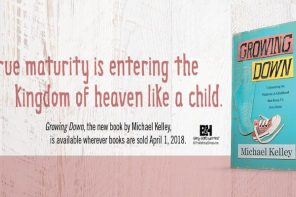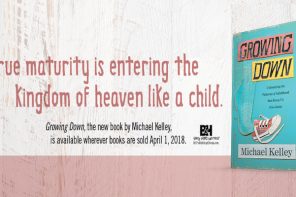Politics is a tricky area for the Christian. Ask any single Christ-follower, and you’ll find a variety of opinions about level of involvement, political activism, and responsibility. It’s difficult, it seems, to find a consensus on the right and good way to be politically involved and minded. That’s why I’m hopeful about for the book releasing this week called Activist Faith by Daniel Darling, Dillon Burroughs and Dan King.
The idea behind Activist Faith is this: The church should be actively involved in speaking out on political issues, but what happens after the elections are over? The co-authors took twelve of these issues and shared ways that individuals and churches can get involved, right now, in their local communities.
As the author of the chapters on abortion, crime and punishment, marriage, and immigration, I asked Daniel to do a blog interview regarding the book today:
1. What specifically made you want to write a book regarding Christian involvement in issues like these?
I’ve always had my ear to the ground when it comes to political issues and even dabbled in elective politics, helping some friends run for Congress a few years ago. But in the last five years I’ve served as a pastor and I feel it is part of my duty to help God’s people think clearly about the issues in our community, our country, and our world.
What strikes me is just how effective the Church can be when it mobilizes in a community. We can and should engage these issues on a political level (voting, speaking out, etc), but much of the work in solving issues is done on the ground, one person at a time, in very nonpolitical ways. I wanted to highlight these opportunities, so I invited my friends, Dan King and Dillon Burroughs to get involved. The idea is pretty simple: If you are particularly arrested by an issue, yes you should vote accordingly, but more importantly, there are ways you can help alleviate the problems, right now, in your local community. I’m amazed at just how the way God designed the Church to uniquely respond to social ills in a way that no other institution can.
2. How would you respond to someone who says that Christians should deal in spiritual matters; these are political issues?
I would say three things. First, we don’t live our spiritual lives in a vacuum. We live in a society, a world that is shaped by politics. So we can’t escape it if we want to be good citizens. Secondly, and most importantly, if we love our communities and seek their welfare, then it is selfish to wall ourselves off and leave the politics and governing and problem-solving to the “heathen.” Third, there is a way to do this without becoming overly partisan and nasty. It’s very simple. We should lead with the gospel and rest our hope, not in a movement or a party or a person, but in the Kingdom of Christ.
3. In general, how should a Christian view their role in societal issues like these?
A Christian should view himself as Jesus views all Christians, as evidenced in his prayer to the Father in John 17. We are not “of this world” and yet we have been placed “in this world.” This tension can be tricky and often differs in scope for every Christian, depending on his or her specific calling. I would say though, that we are to represent Christ in all that we do and say. We seek His glory. And so as we seek to solve problems in our community, we must do it with both grace and truth. We must not see those who disagree with us as enemies to be vanquished, but as people for whom Jesus died. Any activism or problem-solving must be motivated by love and not hatred or partisan score-keeping.
4. What made you choose these particular issues that are highlighted in the book?
It was difficult, really, because we could have chosen 24 issues instead of 12. But these were issue we really felt were at the forefront of the debate. Some may disagree and as time passes, there are likely other issues that rise that we have not covered. (perhaps the impetus for another book?).
5. What do you hope this book accomplishes in the attitudes of people who read it?
We really have two objectives in mind. First, we want to Christians to see that politics, while important, is not the only vehicle for change. Some of the best work on these issues is being done locally. And so if you are vexed about a certain issue, there are ways to get involved, right now, today, in your local community. After the elections are over and whether or not your guy won or lost, there are still problems in the community that God’s people are uniquely empowered to help solve. Democrats, Republicans, Independents–it doesn’t matter.
Secondly, we want to shine a light on what the Church is already doing. This is what amazes me, really. If you look at almost every social ill in the world, you don’t have to look far to see the Church involved, at some level, at meeting the human need. And so in some ways we want to affirm that Christ’s Body is active and alive doing some of the best work in difficult situations around the world.
6. What about you? Have you always been passionate about these issues? If not, was there a particular moment that made you more passionate or ready to engage?
My journey is interesting. I was a political junkie and even every involved in conservative politics on the local level. But after a few years, God really turned my heart toward the Church. Now as a pastor, I’m seeing where the Church is the greatest institution in the world. Only the church, who heralds the life-saving message of the gospel, can leverage this good news on behalf of the community.
One of the things that really spurred me to pursue this project was meeting with fellow pastors in my own community in Lake County, IL. We have a terrific unity of purpose to share the gospel and alleviate human suffering. What struck me, though, as a young pastor was that whenever we gather, we never, ever talk about politics–who is up, who is down, who is winning–it’s always about seeing a need and finding a way to mobilize God’s people to meet it. That’s when I realized that while politics is important, it’s not ultimate.
——–
You can check out the website for the book at activistfaith.org, view the book trailer here, and get your own copy here.
Subscribe to MichaelKelley.co
Never miss a new post. Subscribe to receive these posts in your inbox and to receive information about new discipleship resources.




So then, what do we do when Christy fully believes candidate A holds the biblical position, and is pro-X, pro-Y, and anti-Z because she is fully convinced this is the biblical stance; but Chris fully believes candidate B holds the biblical position, and is anti-X, anti-Y, and pro-Z?
Because that’s where we are in this country. Somebody (many somebodies) are advocating strongly in God’s name, and at least half of those somebodies are wrong.
Valid question, Doc – wish I had an answer. Of course, it’s not every case when candidate A and B actually hold biblical positions. More often than not, it seems as though both CLAIM to hold a biblical position. Big difference obviously.
The question I am finding myself asking is what is right to concede and what is not? That is to say, what if I am convinced that X, Y, and Z are wrong, but the candidate is only convinced about X and Y. Is it always the case of choosing the lesser of two evils?
Outside of express endorsement of or opposition to candidates for political offices, pastors and churches may engage in many other permissible activities. Churches may host voter registration drives, be a host site for balloting, or host a forum where candidates address the congregation or answer questions from a moderator. Candidates visiting the church may be introduced, and political candidates may even preach in the pulpit so long as the pulpit is not used as a political forum to urge the members to vote in favor of the candidate. Churches may also distribute objective voter guides that address the candidates’ views on a broad range of issues.